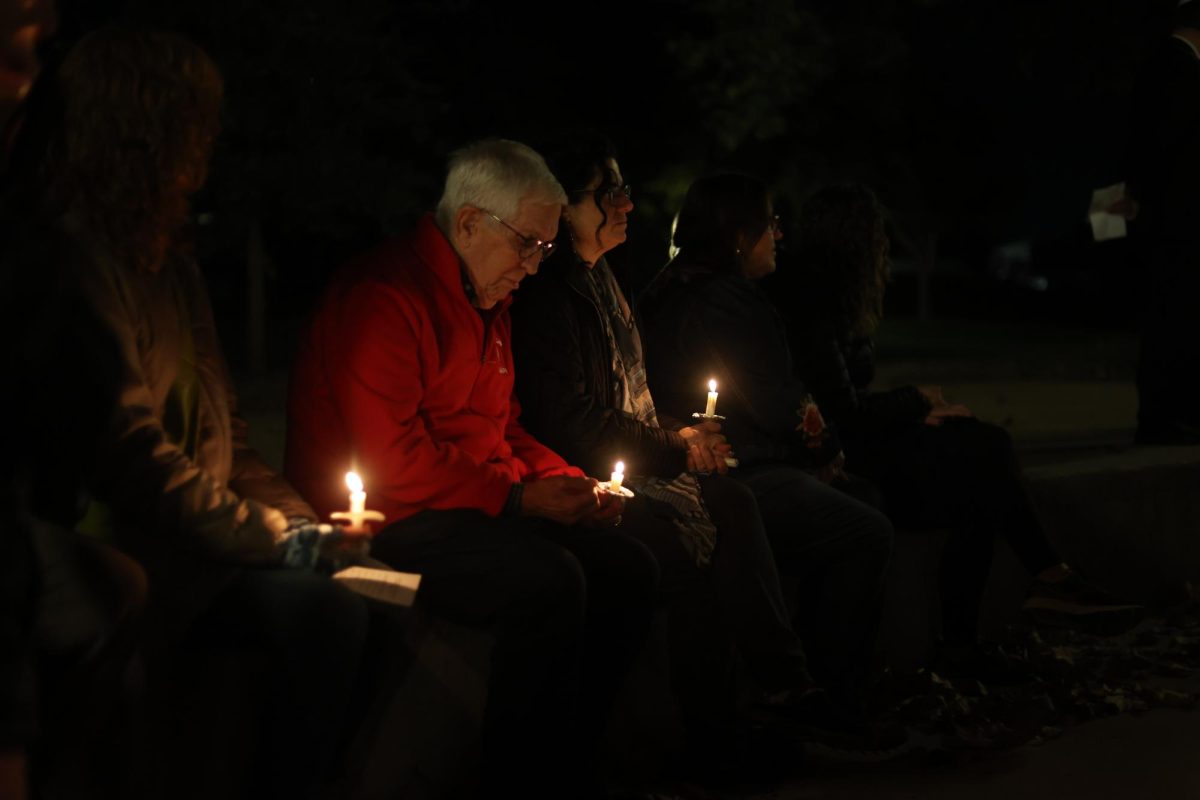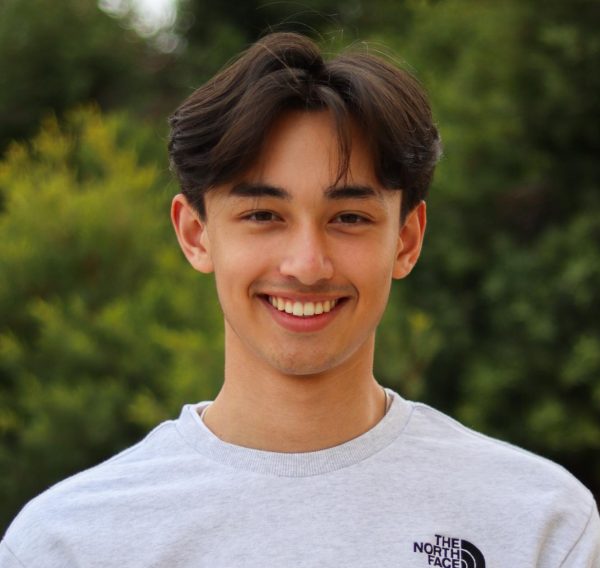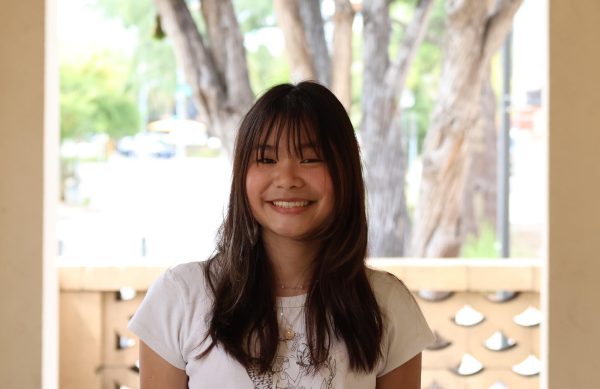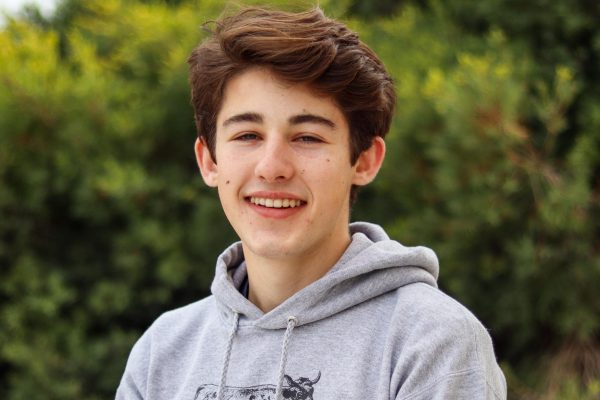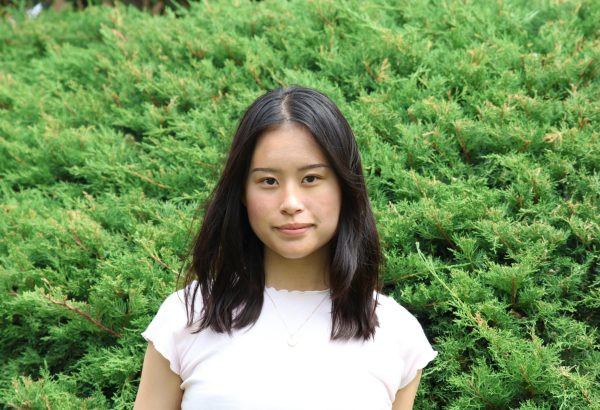When junior Ben Levav heard Hamas militants had opened fire on attendees of the Nova music festival in Tel Aviv, Israel on Oct. 7, he immediately called his friends who were there. They never picked up.
Days later, he turned on the TV, only to watch in horror as familiar names flashed across the screen.
Levav’s soccer coach and two of his friends were murdered by Hamas terrorists. Their bodies were found in Gaza, though it is unknown where and when they were killed.
“I didn’t think that my friends could be endangered,” Levav said. “I thought everything would be fine because I couldn’t even comprehend (what was happening).”
Crisis and Escalation
In the most devastating assault against Jews since the Holocaust, Hamas fighters fired rockets into Israel from the Gaza Strip, a Palestinian territory, and invaded towns on the border of southern Israel on Oct. 7 during the Jewish holiday of Simchat Torah, killing 1,400 Israeli civilians and holding 200 hostage.
Citizens were held at gunpoint in their homes and murdered in front of their families, while some waited in bomb shelters for more than 20 hours. And in Gaza, hostages include both children and the elderly.
In response to the surprise attack, Israel officially declared war on Hamas on Oct. 8 and mobilized roughly 360,000 reservist troops on Oct. 10, and the Israeli Security Cabinet declared the goal of Israel’s military campaign “is to achieve the destruction of the military and governing capabilities of Hamas.” The same day, Israel declared a complete siege of Gaza and cut food, water and power access from the Strip. Israeli airstrikes also killed over 4,300 Palestinians and exacerbated the ongoing humanitarian crisis, as the territory currently hosts a refugee population of around 1.5 million. On Oct. 14, Israel called for over a million Gazans to evacuate North Gaza, an overpopulated 140-square-mile strip densely packed with two million residents, in wake of an Israeli ground invasion, though many are trapped at the Egyptian and Israeli borders.
Historical Context
In the late 1800s, a growing movement to establish a Jewish homeland, known as Zionism, led to an influx of Jews moving to Palestine — a territory under British control after the Ottoman Empire was dissolved during World War I.
During and after World War II, many Jews fled to Palestine in wake of the Holocaust. In 1947, the U.N. formally partitioned the land of Palestine into a Jewish state and an Arab state, forming Israel.
Palestinians rejected the resolution and Arab nations such as Egypt, Iraq, Syria and Jordan immediately invaded the Jewish state, which successfully repelled the attacks with military aid from the United States. As a result, over 700,000 Palestinians were permanently displaced from their homeland.
In 1967, Egypt and other Arab states mobilized their armies along the Israeli border, and Israel responded with a pre-emptive strike called the Six Day War.
As a result, Israel took control over Egypt’s Sinai Peninsula, the West Bank, the Gaza Strip and the Golan Heights in Syria.
In 1993, Israeli Prime Minister Yitzhak Rabin and Palestine Liberation Organization Negotiator Mahmoud Abbas negotiated the Oslo Accords where the PLO formally recognized Israel as a state. Peace was temporary, however, as Israel continued to build settlements in Palestinian territory and Palestinian groups committed terrorist attacks against Israel.
Hamas was formed in 1987 in response to a Palestinian uprising known as the First Intifada, where Palestinians rioted against Israeli occupation of their territories. Deemed a terrorist organization by the U.S. and the European Union, Hamas has called for the destruction of the Jewish state and the establishment of Islamic rule over Palestine.
After winning Gazan elections in 2006, Hamas seized power from the Palestinian Authority. Since then, Gaza — home to over two million Palestinians — has been controlled by Hamas and joint-blockaded by Israel and Egypt by air, land and sea.
In 2022, Michael Lynk, the U.N. Special Rapporteur for the situation of human rights in the Palestinian territory occupied since 1967, called the Israeli occupation of Palestine in the West Bank an apartheid and the situation in Gaza “an open-air prison, without adequate access to power, water or health, with a collapsing economy and with no ability to freely travel the rest of Palestine or the outside world.” It is estimated that currently more than 80% of Gazans rely on humanitarian aid, largely due to the blockade, poverty and high unemployment rates.
Community Reactions
In light of recent events, people in Palo Alto have rallied in unity to express their discontent. Over 2,000 residents gathered at the local Jewish Community Center on Oct. 10 to grieve.
Adi Greif, an Israeli PAUSD parent, said the conflict has significantly disrupted her daily life.
“It’s really hard to focus on work and not to be scared every night that we’ll wake up to even more civilian deaths,” Greif said. “It’s hard to recognize that there’s a lot of hate in your own community.”
And sophomore Tali Lehrer said the fact that teachers and fellow students have largely ignored the conflict has impacted her focus at school.
“In class, everyone was acting like everything was normal, and I started crying,” Lehrer said. “No one is doing anything. Everyone needs room to grieve and experience everything.”
Some have connections to loved ones in the region. Gunn senior and Palestinian-American Deena Abu-Dayeh said her friends in Gaza have struggled to communicate with her due to the lack of power.
“(I’ve received) crushing, heartbreaking messages from my sister’s friend who lives in Gaza,” Abu-Dayeh said. “She sent a message saying, ‘My battery’s almost out. If I’m not alive, I want you to spread my message about the Palestinian reality.’”
For Palestinians, the situation has made them feel conflicted. Bisan, a Palestinian-American high school senior from the East Coast, who asked to be identified by her first name only out of security concerns, said she initially reacted to the conflict with concern for the safety of Palestinians and retaliation from powerful nations.
“My first thought was dread,” Bisan said. “We’re gonna get destroyed. The U.S. is gonna go against us. The U.K. is gonna go against us. Israel is going to turn us into dust after this. That was a real fear, and it still is a real fear, and I’m watching it happen.”
But in defense of the Israeli response, Ronnie Horowitz, a Gunn student born in Israel, said she believes Israel’s military response was necessary.
“When there’s a war that Hamas started on a religious Jewish holiday, there’s not much you can do other than fight back,” Horowitz said.
Media Influence
Former foreign correspondent for the Wall Street Journal and retired journalism teacher Elisabeth Rubinfien said reposting stories on social media can often cause more harm than good, and that students need to be constantly questioning their sources.
“Students must use all their critical thinking skills to question what they are seeing and ask themselves whether they are credible or not,” Rubinfien said. “Wait for further information before you believe and pass along what you read.”
For example, on Oct. 17, The New York Times published a one-source story about Israel bombing a hospital in Gaza, with the headline “Israeli Strike Kills Hundred in Hospital, Palestininans say.” But official reports have yet to confirm the bomb’s origin, and the photo used in the story was not of the hospital that was bombed.
Because of the potential biases and inaccuracy of the media, Ori Cohen, an Israeli-American senior, said students should make sure to fact check their sources and broaden their knowledge of the conflict by consuming information from all perspectives.
“You should read on every single end of the bias spectrum,” Cohen said. “You should understand that bias and try to make your own truth of it.”
Rubinfien said while reputable publications can provide inaccurate information, social media can exacerbate it.
“Social media has no restraint, no editing guidelines, no journalism ethics or process of editing to make sure that anything is true or reliable,” Rubinfien said. “What differentiates the press is that there’s at least some kind of process. You write a story, you have two or three editors, you have a variety of people looking at it, and they’re thinking about codes of ethics.”
Senior Alma Samet, who is Jewish, said the constant use of social media to share information has led to desensitization of traumatic imagery.
“There’s just so much being posted and circulated and a lot of it is so heartbreaking,” Samet said. “To see people justifying rape and murder — I can’t consume that all the time. So I’ve had to put the phone down.”
Although the graphics can be upsetting, Lehrer said they are crucial to understanding the full picture of the conflict.
“A lot of what I see on social media is very graphic, but these images are important because (they) add more to people’s understanding and show that (what’s happening) is not just statistics because these are people’s lives,” Lehrer said. “(The images) help show people the gravity of the situation.”
Abu-Dayeh said her pro-Palestine posts on social media led to people attacking her with messages and her losing both followers and friends.
“Losing friends made me want to silence myself,” Abu-Dayeh said. “It made me feel boxed in. But (I’m) still reposting because honestly, I feel it’s more valuable making people aware of these lives being lost. I don’t really want to be friends with people who get mad at me for posting about the death of my people.”
District Response
Five days after the initial Hamas attack against Israel, Superintendent Don Austin posted a message through ParentSquare addressing the “requests” for him to comment on the conflict. In the message, Austin said his words might not bring “tangible change” to the conflict, but he emphasized district efforts to unite the community, condemning murder and terrorism in the process. Austin’s message included the word “Hamas” once and the word “Israel” twice, which Cohen said was inadequate and did not address the situation properly.
“If a student were to read it and not have kept up with the news, they could think that some tsunami had hit,” Cohen said. “It was not specific enough. It was very vague, and by staying silent, you’re allowing this anti-semitism to run rampant.”
And Lehrer said the post contributed to a general lack of awareness of the situation.
“People didn’t know what was happening because he didn’t address (the conflict) specifically,” Lehrer said. “When people don’t know what’s going on, it’s not necessarily their fault. It’s because no one is talking about it. The administration is making it seem (insignificant) because of their lack of acknowledgement.”
Similarly, Cohen said the district’s statements regarding Hamas’s actions signaled a sense of complacency and was the equivalent to endorsing violence.
“It’s empowering (Hamas) to keep going because if you don’t specifically condemn it, you’re almost saying that either you don’t care or you think it’s OK,” Cohen said. “Staying neutral is not an option. Terror is not an option. You need to respond and you need to specifically condemn it.”
To encourage a stronger statement from the district, Lehrer said several students sent emails to Austin on the night of Thursday, Oct. 12, requesting another message be sent out to the community before 8 a.m. on Oct. 13.
Cohen said this was in response to a statement by former Hamas Political Bureau Chairman Khaled Mashal calling for demonstrations on Oct. 13 to “send a message of rage that we stand with Palestine, Gaza, the Al-Aqsa Mosque and Jerusalem” while on a Yemeni news channel. In his original message, Austin said there would not be another update on Oct. 13. But in addressing parent and study concerns, Austin then posted a message at 8:14 a.m. on Schoology that Friday reassuring students and parents that schools would be safe.
He said there were “no credible threats” and the district was in “constant communication with the Palo Alto Police Department.”
To students who decided to miss school, Austin said the district respects their decisions but threats of violence are “ongoing and somewhat predictable in the current global climate.”
A female senior who asked not to be identified out of security concerns said while the administration is in a difficult position due to the multiple communities engaged with the issue, she still hopes for more awareness to be raised about certain groups.
“Our administrators really need to take into consideration what the Middle Eastern and North African students feel because it’s so hard to be an extremely small minority,” the female senior said. “Our community is so small that our voices are being overpowered, and we deserve the same treatment.”
And Principal Brent Kline said the district response to the events in Israel were intentionally minimal to allow students to start their own civil discussions.
“The Israel-Hamas conflict is deeply sensitive, and it’s complex,” Kline said. “There are diverse perspectives in our school community, and by crafting statements that might have a degree of ambiguity, it creates space for students to form their own opinions and to engage in respectful discussion.”
Moving Forward
Kline said he acknowledges the severity of the conflict and said students should continue to treat each other with compassion.
“We need to continue to emphasize open dialogue and encourage open and respectful discussions and provide classrooms that are safe where students can express their thoughts and their concerns,” Kline said. “We need to think of this as an opportunity to foster critical thinking about world events.”
Lehrer agrees and said she encourages students to take part in discussions, even though the sensitivity of the topic can lead to uncomfortable discussions.
“This is not something that we can move past from right now,” Lehrer said. “People need to know what’s happening.”
Jonathan Levav, Ben’s father who was born and raised in Israel, said he agrees that people should not dismiss this issue, but it is also crucial to keep moving forward.
“I don’t want to let some fundamentalist Islamic terror group stop me from doing my job,” Jonathan Levav said. “My job is to teach our students. If I let them stop me from teaching my students, then they’ve won. They want to stop my life. They won’t stop my life.”
Ultimately, Greif said everyone is fundamentally human regardless of their stance.
“Death on any part is sad and tragic,” Greif said. “The Palestinians deserve to have a flourishing, healthy life, and so do the Jewish and Arab Israelis.”

